Applicants & Licensees / Host Community Agreements
Host Community Agreements
Under state law, Marijuana Establishments (ME) and Medical Marijuana Treatment Centers (MTC) must execute Host Community Agreements (HCA) or HCA Waivers with the municipalities in which they plan to, or will, continue to operate.
Basic Terms and Conditions
The HCA identifies all stipulations and responsibilities of both the Host Community and the License Applicant or ME/MTC. Host Communities should review the regulations and relevant guidance documents, including the Guidance on Host Community Agreements.
The HCA must include the following terms:
- The specific license operations permitted under the terms of the HCA;
- The name, signature, and title of the individual(s) authorized to enter into HCAs on behalf of a Host Community as a contracting authority;
- The name, signature, and title of the individual(s) authorized to enter into HCAs on behalf of a License Applicant or ME/MTC as an authorized representative;
- The date(s) of execution by both parties;
- The effective date of an HCA; and
- The duration of an HCA.
The Commission also requires each party to negotiate the terms in good faith. Neither party shall use inducements, undue influence, duress, coercion, intimidation, threats, or any strong-arm tactics to negotiate terms of the HCA. While the parties may agree on a wide range of terms and conditions, the following are possible provisions that may be outlined in the agreement:
- A provision that the ME/MTC must make best efforts to have jobs available to residents of the Host Community. While residency may be one of several positive factors in recruitment, it should not prevent the ME/MTC from hiring the most qualified candidates or hinder compliance with Massachusetts Anti-Discrimination and Employment Laws.
- A condition deemed necessary to ensure public safety with details as to why the condition is necessary.
- A condition deemed necessary to ensure public health with detail as to why the condition is necessary.
- A condition that is a local requirement customarily imposed by a Host Community on other non-cannabis businesses operating in the community.
- A provision explicitly identifying any generally occurring fees to be charged by a Host Community. Generally occurring fees are customarily imposed on other non-cannabis businesses operating in a Host Community and shall not be considered a Community Impact Fee (CIF) (e.g., routine water, property tax, sewer, trash pickup etc.)
- A provision outlining the steps that an ME/MTC must take if it wishes to relocate within the municipality.
- Stipulations or a procedure if the ME/MTC wishes to terminate the agreement with the municipality.
- Clear, specific terms regarding a Host Community’s assessment of a CIF, including but not limited to, a provision requiring a Host Community to annually transmit its invoice of claimed impact fees to the ME/MTC within one month of the anniversary of the date the ME/MTC received final licensure.
- A clause where the parties voluntarily agree to bring HCA disputes before a private mediator retained by the parties. Neither party may unilaterally compel private mediation.
- A condition required by law.
Prohibited Terms and Conditions
The following provisions are prohibited in the HCA:
- A promise to make a future monetary payment, in-kind contribution, or obligation, providing staffing, advance payments, or charitable contributions by either party.
- A contractual financial obligation, other than a CIF, that is a condition, except for
- an ME’s obligations to pay any fees associated with sales tax, excise tax, optional local tax, or as otherwise provided in M.G.L. c. 94G, M.G.L. c. 64H, and M.G.L. c. 64N; and
- references to an ME’s obligations to pay a Host Community for generally occurring fees such as water, sewer, property tax, etc.
- A provision that imposes legal, overtime, or administrative costs or any costs other than a CIF on an ME/MTC with the exception of an ME/MTC’s tax obligations or its responsibility for paying routine, generally occurring municipal fees.
- A provision obligating an ME/MTC to set aside money in an escrow, bond, or other similar account for a Host Community’s use or purposes.
- Mandate or require the CIF be a certain percentage of an ME/MTC’s total or gross sales.
- A provision that discourages any party from bringing a civil cause of action or other legal challenge relative to an HCA or to an individual term or provision of an HCA.
- A provision that requires a License Applicant or ME/MTC to make upfront payments as a condition for operating in the Host Community.
- A provision that affords a Host Community sole and absolute discretion on how a Host Community will spend a CIF.
- A provision including or deeming good faith estimates, unquantifiable costs, generalized expenses, or pro-rated expenses as a CIF.
- A provision that categorically deems a Host Community’s claimed CIFs to be reasonably related or that otherwise excuse a Host Community from calculating impact fees based on the actual operations of an ME/MTC.
- A provision waiving an ME/MTC’s ability to dispute whether impact fees claimed by a Host Community are reasonably related and properly due and payable as a CIF.
Commission Review
The Commission will review all HCA’s submitted by a License Applicant or an ME/MTC and decide whether the HCA in whole or in part satisfies Commission requirements. The Host Community, License Applicant and ME/MTC may use the Commission provided Model HCA which, if not modified, will satisfy the Commission’s HCAs requirements.
The Commission may request additional information in connection with its review. The Commission will send a notice of its HCA determination to both a ME/MTC or License Applicant and the Host Community within 90 days of receipt of an HCA.
If the Commission determines the HCA does not comply or a portion of the HCA does not comply, the Commission will send a notice with the findings of noncompliance, listing the noncompliant terms, conditions or provisions (as applicable), how the parties can correct the noncompliance and submit an amended HCA, and remind the parties of the option to submit an HCA Waiver or utilize the Model HCA as an interim agreement.
Host Community Agreement Waivers
An HCA Waiver expresses the Host Community and the License Applicant or ME/MTC’s intent to waive the HCA requirement. This waiver fully eliminates the need for the parties to enter into an HCA. It cannot be used to waive individual provisions of an existing HCA. The waiver can be submitted during the licensure application or renewal process, and even after both parties have already executed an HCA. The Commission will review and determine the compliance of the HCA Waiver, and any waiver specifying an expiration date or conditions is considered noncompliant. Once executed and recorded with the Commission, an HCA Waiver remains valid until it is rescinded. To rescind an HCA waiver, the parties must submit a fully executed HCA and the Commission must review and approve it.
Complaints
Individuals concerned about fraud, waste, or abuse may contact the Massachusetts Office of the Inspector General’s hotline at (800) 322-1323. Complaints about noncompliance of a Host Community regarding its HCA obligations may be directed to Commission@CCCMass.com or (774) 415-0200.
For More Information
Guidance on Municipal Equity & Industry Participation
Guidance on Host Community Agreements
Model Host Community Agreement Template
Host Community Agreement Waiver Form
Communication to Municipalities Regarding Municipal Equity | May 21, 2024
If you have additional questions regarding HCAs, please contact us at Commission@CCCMass.com or (774) 415-0200.
Attend a Public
Meeting
The Cannabis Control Commission conducts
meetings and other events to keep you informed.
Subscribe to Our
Notice List
Sign up for updates from the
Cannabis Control Commission.
Attend a Public
Meeting
The Cannabis Control Commission conducts meetings and other events to keep you informed.
Subscribe to Our
Notice List
Sign up for updates from the Cannabis Control Commission.

